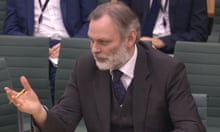Labour MPs will be asked to vote through the Brexit bill at its last stage in the House of Commons regardless of whether any amendments are passed, raising the possibility of further frontbench resignations.
The shadow cabinet agreed that Jeremy Corbyn should impose a three-line whip on the bill at a third reading on Wednesday, even if opposition parties do not manage to make any changes to the legislation over the next two days.
It will create a difficult decision for MPs such as Clive Lewis, the shadow business secretary, who has said he would find it hard to vote for the Brexit bill without amendments. There is also speculation about the way the shadow home secretary, Diane Abbott, will vote, after she was absent from the first Commons vote with a migraine.
However, one Labour shadow cabinet source said they did not believe Abbott in particular would end up walking away from Corbyn’s leadership team.
At the first vote last week, Corbyn suffered a rebellion of 47 MPs, or one-fifth of the parliamentary party. Three shadow cabinet members, Dawn Butler, Rachael Maskell and Jo Stevens, resigned to vote against the legislation, and a dozen more junior frontbenchers chose to defy the whip.
It is understood that any disciplinary action against MPs who go against the whip will be decided only after Wednesday’s vote.
Opposition parties have several key votes on Tuesday and Wednesday at which they will try to garner enough support to change Theresa May’s Brexit bill, to secure a more meaningful vote at the end of two-year negotiations as well as impact assessments on the cost of leaving the EU and a guarantee of the rights of EU nationals.
Two Labour amendments attempting to bring about regular parliamentary scrutiny of Brexit and more say for the devolved administrations failed on Monday night, losing to government majorities of 49 and 57.
Opposition MPs are more hopeful of gaining support from rebel Tories during the next two days, on the issues of guaranteeing the rights of EU nationals in the UK and a more meaningful vote at the end of the Brexit negotiations.
Some Conservatives have indicated that they could be willing to back amendment 110 tabled by the former shadow chancellor Chris Leslie, calling for “any new deal or treaty” with the EU to be put to a vote before both houses of parliament. This would give MPs the opportunity to reject any exit terms they felt were unsatisfactory.
The government remains fairly confident of seeing off the rebels, but may have to offer some further concessions to dampen down the revolt.
Speaking in the Commons, May hinted that more detail could be given about the form of the vote after negotiations when David Davis, the Brexit secretary, addresses parliament on Tuesday, which may be enough to dissuade backbench Conservatives from rebelling.
May warned MPs not to obstruct the Brexit bill during its second phase of debate in the Commons, arguing that any move to slow down the passage of the bill would be tantamount to obstructing the verdict of the EU referendum.
“Our European partners now want to get on with the negotiations, so do I, and so does this house, which last week voted by a majority of 384 in support of the government triggering article 50,” she said.
“There are of course further stages for the bill in committee and in the Lords, and it is right that this process should be completed properly. But the message is clear to all: this house has spoken and now is not the time to obstruct the democratically expressed wishes of the British people.
“It is time to get on with leaving the European Union and building an independent, self-governing, global Britain.”
Nick Boles, a Conservative former skills minister, who has cancer, said on Tuesday that he is temporarily leaving hospital in the middle of his treatment to attend the third reading vote.
Today, on my own initiative, I am coming out of hospital to support the government on the #Article50 bill. Details: https://t.co/msrUhEYChj pic.twitter.com/mjvjrbFlLK
— Nick Boles (@NickBolesMP) February 7, 2017
“On my own initiative, I am coming out of hospital to support the government on the article 50 bill. I have spent the past week receiving my third round of chemotherapy for the cancer that was discovered last October,” he wrote on Facebook.
“I feel pretty grim and will have to go back to hospital after I have voted. But I want to come to parliament to represent my constituents on this important bill and do my bit to ensure that it is passed without amendment.”










Comments (…)
Sign in or create your Guardian account to join the discussion